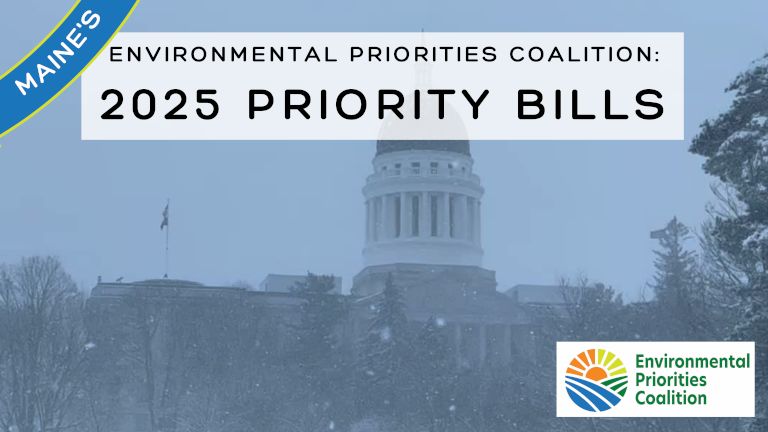2025 EPC Priorities
Maine’s Environmental Priorities Coalition (EPC) is an inclusive statewide alliance of 39 conservation, climate action, and public health organizations. Each year we collectively identify a slate of policy priorities to act on the climate crisis, further environmental justice, protect land, water, and wildlife, and cultivate healthy Maine communities
